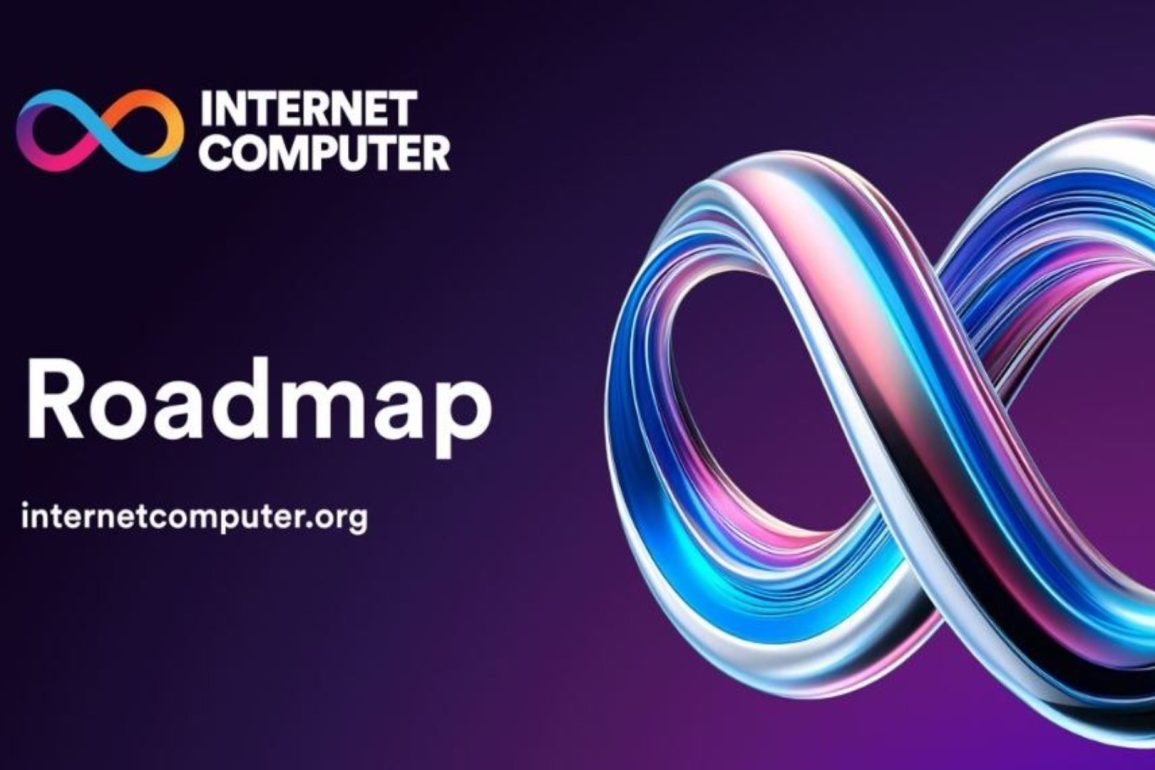- Summary:
- Internet Computer Protocol (ICP) roadmap lays out a path that will allow AI models to be trained and run on-chain.
Internet Computer Protocol (ICP), a decentralized blockchain network that extends the functionality of Web3 by overcoming the limitations of traditional blockchains and smart contracts, today released the “Year 4 Internet Computer Roadmap” as it celebrates the 3rd anniversary of its mainnet launch. The new roadmap summarizes three years of progress and outlines key development areas set to position ICP as the home of Decentralized AI and the orchestration layer for the blockchain industry.
Since its launch in May 2021, the Internet Computer blockchain has witnessed zero downtime, processed over three billion blocks, and accumulated more than $3 billion of value locked in the Network Nervous System (NNS) DAO that governs the Internet Computer Protocol. Developer growth in the ICP ecosystem has been equally impressive. According to Electric Capital, the number of developers in the ICP ecosystem jumped 12x between 2020 and 2023 despite its mainnet not launching until May 2021. Moreover, ICP is host to some of the most-used applications in crypto, including DMail, DSCVR and OpenChat.
The new roadmap for ICP’s fourth year outlines key focal areas and within them many pivotal milestones. Decentralized AI and Chain Fusion are two of the biggest highlights of the new roadmap.
Dominic Williams, Founder and Chief Scientist of the DFINIY Foundations says, “The Internet Computer is the first and only Third Generation public blockchain. The mission is to drive a “blockchain singularity,” where over time fully decentralized blockchains become the world’s prevailing tech stack, even running secure and unstoppable AI. The DFINITY Foundation and its eminent team of cryptographers, research scientists and engineers, is now pushing ahead with a new roadmap, crafting contributions that will make the network faster, more efficient and more powerful than ever before.
Decentralized AI
ICP’s Decentralized AI (DeAI) roadmap lays out a path that will allow AI models to be trained and run on-chain. AI plays an increasingly prominent role in our lives, but AI models today behave like black boxes where users have no visibility into how their data is used and how AI models produce responses, whether they work correctly, reliably, and consistently.
ICP’s computational power and smart contract expressiveness are uniquely positioned to solve this problem.
Milestone 1
- Faster deterministic floating-point operations, 10x boost in performance
- Wasm SIMD support, enabling four floating-point operations with a single CPU instruction
- Optimizing AI inference engine
Milestone 2
- Deterministic API for AI computations on GPU
- Tooling and libraries for developing AI smart contracts
- Public specification for GPU-enabled nodes
- AI-specialized subnets with GPU-enabled nodes
Achieving the long-term goals will enable a series of first-of-its-kind use cases such as:
- AI smart contracts can verify that a person on video holds a driving license that matches their face (autonomous blockchain KYC)
- AI smart contracts that verify the code of Ethereum smart contracts, producing a checkmark if they can’t find reentrancy and other bugs
- LLM AI smart contracts enable you to interact with smart contracts using natural language
- Web3 communities that control AIs through DAOs
- Ready-trained AIs traded as NFTs
ICP’s efforts to bring AI on-chain and provide users and developers with trustworthy AI models are not new. In July last year, the DFINITY Foundation, Swiss not-for-profit and major contributor to the Internet Computer blockchain (ICP), launched a $5 million decentralized artificial intelligence (DeAI) grant program to support Decentralized AI on the Internet Computer blockchain. Several innovative AI projects including Kinic, DecideAI, ELNA AI, ICGPT, and Earthstream are already building on ICP.
Chain Fusion
ICP’s Chain Fusion facilitates direct interoperability with major blockchains like Bitcoin, Ethereum, other EVMs, and soon Solana without intermediaries. ICP smart contracts can read from and write to various chains, allowing developers to create contracts spanning multiple chains. Chain Fusion solves the fragmentation of liquidity and tackles tribalism in the blockchain industry. Its development plan includes multiple key milestones:
Milestone 1: Chain Fusion technology fully supports EVM chains, allowing canister smart contracts to hold and transact tokens on these chains and interact with their smart contracts without bridges or centralized intermediaries
Milestone 2: Chain Fusion fully utilizes Bitcoin-native protocols (BRC20, Runes), enabling fully decentralized support of Bitcoin ordinals and runes. Developers can build dApps that combine the best of Bitcoin and ICP seamlessly
Milestone 3: Chain Fusion will soon add support for Solana, removing the gap between the Solana network and ICP to allow for smart contracts that combine the powers of the two networks. Smart contracts on either network can call smart contracts on the other network.
The full roadmap can be viewed here.
About the Internet Computer
The Internet Computer Protocol (ICP) is a decentralized cloud 3.0 protocol that allows developers to build and run services and enterprise systems directly on a public blockchain network with unprecedented scalability. Services running on top of ICP are tamper-proof and can negatively interact with the outside world in a trustless manner, both with traditional web 2.0 services and with other blockchains. The fast, low-cost, and energy-efficient protocol establishes a new paradigm for how a decentralized network truly operates in web3.


